
About Dil Rahut
Dil Rahut is vice-chair of research and a senior research fellow at ADBI.Mechanization Driving the Future of Agriculture in Asia
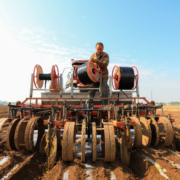
Agricultural mechanization boosts production by using machinery for tasks like plowing, irrigation, and harvesting to increase efficiency, reduce labor intensity, and alleviate seasonal labor shortages.
Funding a Resilient Future: Bridging Climate Financing Gaps

Climate finance is at the forefront of the climate change discourse as a critical tool for achieving mitigation and adaptation outcomes.
Food Security Amid Evolving Inclusive Growth Priorities
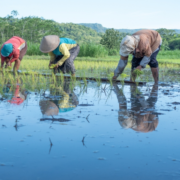
Food security is a global challenge impacted by multiple evolving threats to the food supply chain.
How the Internet is Revolutionizing Sustainable Agriculture in Asia
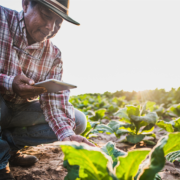
Internet use can fosters a more sustainable future for agriculture through improved farm management and farm performance.
Social Protection for the Informal Economy in South Asia
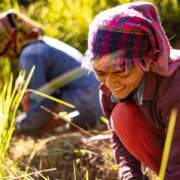
The informal economy leaves workers exposed to financial and personal risks
Linking Farmers to Markets Through Agricultural Cooperatives and E-Commerce in Asia
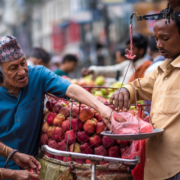
Market participation profoundly impacts farmers’ livelihoods and well-being by boosting household incomes and contributing to food and nutrition security.
Evaluating G7 Commitments on Climate Change, Health, Well-Being, and Agriculture

Accountability and transparency are fundamental principles of the G7.
Climate-Smart Agriculture for a Sustainable Future

Climate-smart agriculture is crucial for increasing farmers' resilience to climate change and promoting a sustainable future for agricultural sectors.
The Hidden Menace of Microplastics

Microplastics can be invisible to the naked eye but threaten the environment and even our own food chain.
Increasing trust in cross-border e-commerce and artificial intelligence

E-commerce has lowered trade barriers and stimulated trade growth around the world, but trust issues still remain.


Search
Subscribe / Connect to Asia Pathways
Subjects
- Agriculture and natural resources
- Blog
- Capacity development
- Climate change
- Economics
- Education
- Energy
- Environment
- Finance sector development
- Gender
- Governance and public sector management
- Health
- Industry and trade
- Information and Communications Technology
- Infrastructure
- Miscellaneous
- Population
- Poverty
- Private sector development
- Regional cooperation and integration
- Sanitation
- Social development and protection
- Transport
- Uncategorized
- Urban development
- Video Blog
- Water
Recent Posts
- Transforming ASEAN: Advancing Regional Integration, Social Inclusion, and Environmental Sustainability
- Development of the Creative Economy in Asia and the Pacific
- Kashima City’s Great Transformation: Where Industry Meets Community
- Mechanization Driving the Future of Agriculture in Asia
- Natural Capital: Valuing Nature to Protect and Restore Ecosystem Services for Sustainable Development




Recent Comments